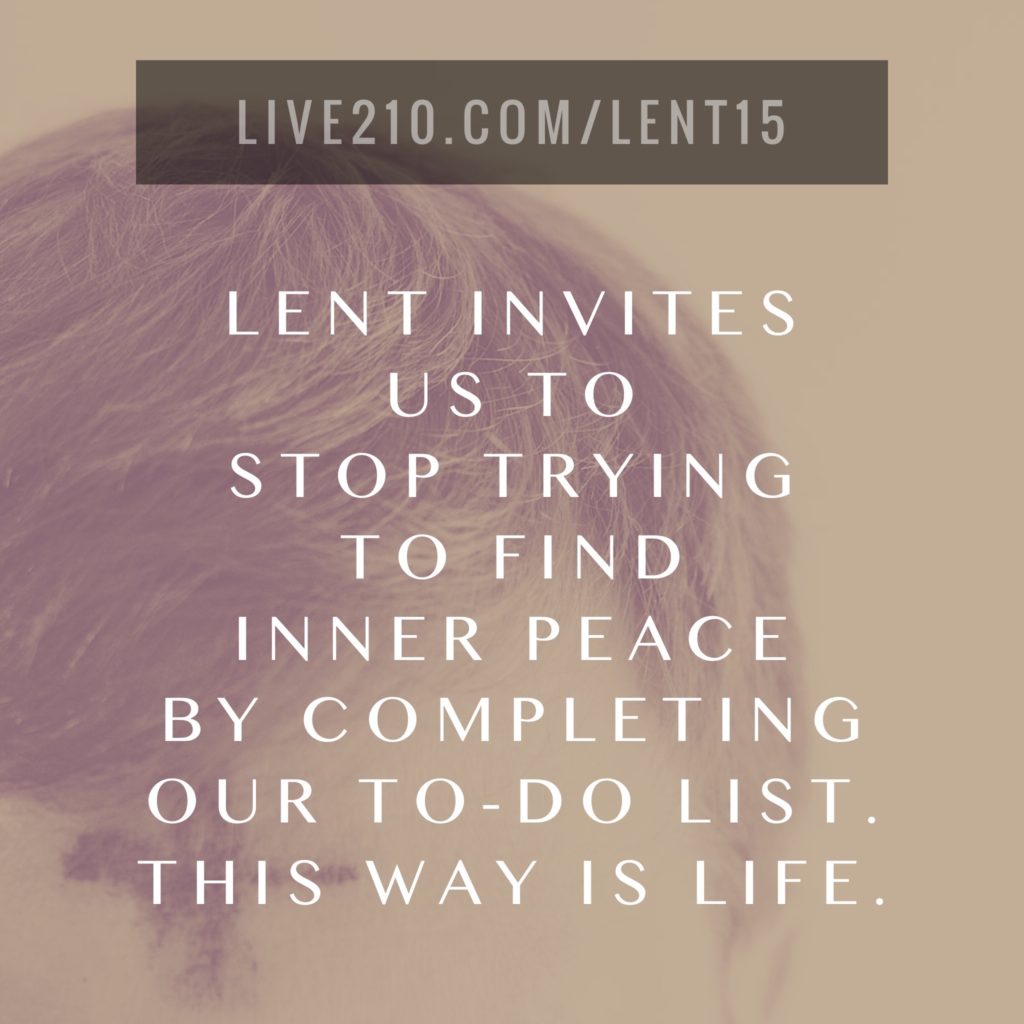6 min. to read.
This is the 15th day of Lent. Luke 10:38-42 is today’s scripture, the contrast between Mary and Martha..
Jesus and his disciples stop in Bethany to rest for a while at the home of friends, Lazarus and his sisters, Mary & Martha. Martha is caught up in the tasks of hospitality, but Mary did something different. Instead of serving the men, as was expected of her, she sat and listened to Jesus. She sat with the disciples, behaving as a disciple. Martha was frustrated, maybe indignant, about Mary’s choice and asked Jesus to tell Mary to get to work. Instead, Jesus told Martha that she was “worried and distracted by many things,” but that Mary had chosen the only thing that was truly needed–and he would not take it from her.
Martha gets a lot of criticism in interpretations of this text. She’s not worshipping. She’s not learning from Jesus. She’s trying to leverage Jesus’ authority to make her sister behave. In reaction to all that criticism, we’ve often treated this passage more as a personality test than anything else. There are people in the church who are contemplative and others who are task-oriented. There are people with gifts for worship and gifts for service. Are you a Martha or a Mary? The church needs both! Being a task-oriented person myself, I’ve related to this angle. After all, without the Marthas of the world, the Marys would never eat or have clean laundry!
But the scripture on its face doesn’t leave room for this interpretation. The text challenges Martha for being caught up and distracted by work that amounts to “second things,” and affirms Mary’s choice to do the one thing that is needful. The correction offered to Martha and the affirmation of Mary are placed in the mouth of Jesus! So, if this passage makes us uncomfortable or feels pointed, perhaps we need to sit with that.
Sitting with my own discomfort, I re-read the passage several times. That’s when I noticed that one of my assumptions about the scene does not come from the passage. Dang. Until this morning’s reading, I thought that Martha was occupied with the hospitality work, preparing food for her guests. This would be both expected and necessary. It would also be work that could be considered an act of service. The text, however, does not say that. The nature of Martha’s business is not named!

Luke simply says, “Martha was distracted by her many tasks.” When she complains to Jesus, she says, “My sister has left me to do all the work by myself.” When Jesus replies, he says, “You are worried and distracted by many things.” The text only names the work as “her many tasks.” Martha thinks of it as “all the work.” Clearly, she thinks it’s necessary, and needs to happen right now. For some reason in her assessment this work is more important than taking the opportunity to sit with Jesus (who, it’s perhaps worth remembering, will only be in her home for a short time).
Perhaps this isn’t a story about different gifts, or making sure we don’t let service get in the way of worship. I suspect our desire to tip the scale back toward Martha is less about her and more about avoiding the discomfort of being chastened by Jesus. All of us, I suspect, know what it’s like to be so distracted and preoccupied that we can’t be spiritually present. We’ve been there, maybe are there now. To hear Jesus says plainly that being spiritually present is the one thing that matters, well… that hurts a bit.
I’ve approached this whole series of scriptures with the same premise. Lent is a season of interior reflection where we are invited to let go of those things that get in the way of our encounter with Jesus. For this scripture, that premise couldn’t possibly be more on-the-nose!
There is an encounter with Jesus going on in the text. Jesus is in the room! He’s teaching, maybe answering questions. There’s no crowd around to limit the conversation. The disciples have the option to sit with him, to just be in his presence. Or they can do other things. Mary joins the disciples sitting at Jesus’ feet.
Martha doesn’t. Her mind and hands are occupied. Jesus is in her home for a brief stay and she can’t just stop to be present to what is going on. The disciples are not demanding that she make sandwiches. As far as the text, she’s in charge of her own behavior. The to-do list in her own mind is so loud and demanding that she cannot stop. The issue is not her personality or desire to get things done. She is anxious about accomplishing her work. The anxiety is causing her to be distracted. So, she doesn’t have peace of mind or the freedom to be present when Jesus is in her own house.
We live in a society that honors hard work and accomplishment. Performance is the highest measure of merit. Any task or time slot that doesn’t provide value is seen as wasted time, or maybe a luxury available to those who’ve finished their chores.
If Lent is inviting me to give up those things that impede an encounter with Jesus, this passage raises uncomfortable questions for someone like me. Am I so caught up in my necessary tasks that I can’t be present? Does my need to prove my value through performance mean that my unfinished tasks cause me anxiety? Am I driven to work? In my obligation to this never ending list of tasks, do I feel bitterness toward others who seem to be free from this kind of driving obligation? Do I think of them as lazy or unmotivated or irresponsible?
If any of this is true for me then my own internal taskmaster is not only getting in the way of my encounter with Jesus, but is also undermining relationship with those around me. It drives me to think that somehow, if I am not on task at all times, the world will end or I’ll be exposed as a fraud. When the opportunity to simply be present to another—or to Jesus—arises, I simply cannot because there is just too much to do and too much internal discomfort if I stop.
Jesus doesn’t chastise Martha for being responsible, or for being the kind of person who keeps things orderly, or for getting things done. He observes that she is “worried and distracted” and this internal discomfort is keeping her from choosing the one thing that in the present moment is most needed.
Lent invites us to stop trying to find inner peace by completing the to-do list. This way is life.
